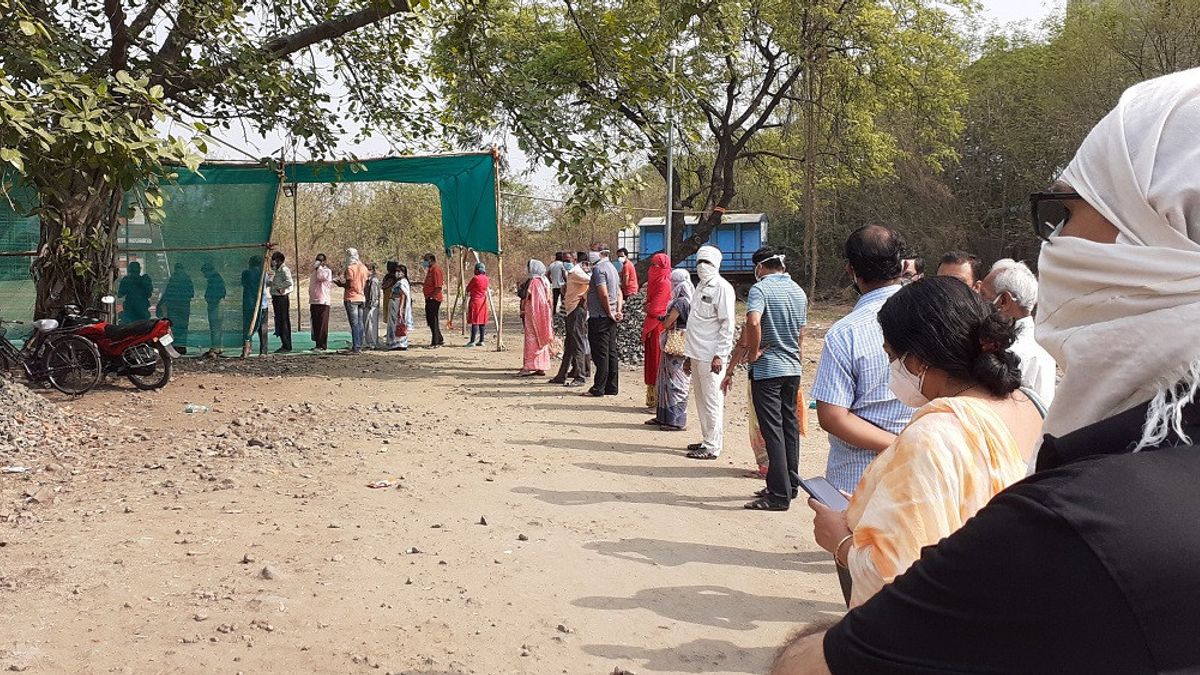JAKARTA - The number of new cases of COVID-19 infection in India is decreasing, although the death rate has increased. Even so, WHO asked that the condition be kept on alert.
The Indian Ministry of Health report on Monday, May 17, said that there were 281,386 new cases of COVID-19 infection in the last 24 hours. Meanwhile, the death toll rose to 4,106. This is the first time the number of new COVID-19 infections in India has been below 300,000 since April 21.
With this increase, India recorded a total of 24.97 million cases of COVID-19 infection, with the total death rate due to COVID-19 to 274,390 deaths.
However, experts warn vigilance should not be lowered, given the lack of testing in rural areas, where the virus is spreading rapidly. For almost 2 weeks, India recorded an average of more than 400 thousand new cases of COVID-19 infection.
Experts also warn that despite the continued decline in cases of infection, there is no certainty the infection has reached a peak, with concerns growing both at home and abroad over the new, more contagious variant of B1617.
"There are still many parts of the country that have not experienced peaks, they are still rising", world health organization (WHO) Chief Scientist, Soumya Swaminathan, said as quoted by Reuters from the Hindu newspaper on Monday, May 17.
Swaminathan points to a very high level of national positivity, about 20 percent of the tests performed, as a sign there may be worse to come.
"Testing is still inadequate in many states. And when you look at the high positive levels of testing, obviously we didn't test enough. So, absolute numbers don't actually mean anything when taken on their own. They should be taken in the context of how much testing is done, and test the level of positivity", she said.
With this condition, the total burden of Indian cases since the epidemic hit a year ago will exceed the figure of 25 million in the coming days. The total number of deaths is expected to reach 274,390.
Unlike the first wave of COVID-19 which peaked in September last year and is concentrated in urban areas. The second wave of COVID-19 in India that erupted last February was concentrated in cities and villages, where testing in the region was severely lacking.
"This decline in confirmed COVID cases in India is just an illusion", S. Vincent Rajkumar, a professor of medicine at the Mayo Clinic in the United States, said on Twitter.
"First, due to limited testing, the total number of cases is too low. Second, confirmed cases can only occur if you can ascertain urban areas. Rural areas don't count", he said.
SEE ALSO:
For the record, the Government of India issued detailed guidelines on Sunday to monitor COVID-19 cases, with the Ministry of Health asking villages to look for people with flu-like diseases and check them with COVID-19.
The English, Chinese, Japanese, Arabic, and French versions are automatically generated by the AI. So there may still be inaccuracies in translating, please always see Indonesian as our main language. (system supported by DigitalSiber.id)


















